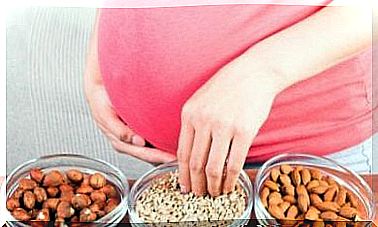How To Improve Your Digestive Health Through Diet – You Are Mom

The digestive system is the central axis of food, as it ensures the assimilation of nutrients and good physical and mental health. It is a collection of organs that, through the secretion of substances such as enzymes, gastric juices, among others, break down each food into smaller particles.
Did you know that an alteration in any of these phases can lead to discomfort or a nutritional deficit? Here’s how you can improve your digestive health with food.
Do you have good digestive health?
In 2010, the Spanish Foundation for the Digestive System determined that almost 50% of Spaniards suffered from a digestive pathology, and this proportion continues to increase. Most of these are related to the gut, as this is where the bacteria responsible for completing digestion are found.
In summary, it happens that food that has not been digested well in the stomach is fermented by microbial bacteria giving rise to symptoms as diverse as:
- Abdominal swelling
- Gas and belching
- Reflux and acidity
- Heaviness
- Food intolerance
- Nausea and vomiting
- Diarrhea or constipation
They can also be accompanied by itchy skin, headaches, mood swings, fatigue, weight loss due to loss of appetite or weight gain.
Causes of impaired digestive health

The causes are multiple, although they are distinguished:
- Frequent use of anti-inflammatory drugs and antacids
- The stress
- Poor nutrition
- The tobacco
- Physical inactivity
As a result, the quality and quantity of intestinal bacteria, hydrochloric acid secretion and digestive enzymes decrease. The inflammatory and metabolic markers in the blood are even altered. Therefore, by addressing the root cause, these symptoms can be improved.
The microbiota: the therapeutic target of digestive health through food
The microbiota is the set of microorganisms (viruses, bacteria and fungi) that live mainly in the large intestine. They synthesize nutrients like vitamin K, boost the immune system, and protect us from infections. They also influence our behavior, mood and the development of obesity, overweight, diabetes, etc.
In general, there is a balance in the number and type of species which tend to be altered by the increased permeability of the intestinal wall, preventing the passage of toxins. How can we restore it? By eating healthy from birth.
Practical guide to improving digestive health through diet
Probiotic diet
When we talk about probiotics, we are referring to the microorganisms that coexist in our gut. Take them first to repopulate it and improve its functioning. Although they are found marketed in the form of tablets or powders, there are foods that have undergone a fermentation process by addition.
In addition, they have the advantage of resisting stomach digestion, which allows them to reach the living intestine. Where to find them? For example in:
- Plain yogurt
- Kefir. It can be made from goat’s milk or water. It is similar to yogurt.
- Kombucha (tea)
- Sauerkraut (cabbage)
- Miso (soybean paste used to make soups)

Prebiotic diet
Once you’ve restored bowel function and your symptoms have improved, it’s time to introduce prebiotics into your diet. Otherwise, you will experience a greater feeling of bloating, bloating, and gas.
A prebiotic is the nutrient that probiotics feed on, including fermentable fiber, polyphenols (natural antixosidants), and healthy fats. Let’s take a look at them one by one.
- Fermentable fibers. They are found in fruits, vegetables, grains, tubers, legumes and seeds. The most recommended are:
- The cooked banana, carrot and apple.
- Leek, fennel, onion, asparagus and artichokes.
- Oatmeal, which also helps lower cholesterol.
- Cooked brown rice. It can be cooled and then reheated before being consumed at a low temperature.
- Cooked and chilled potatoes and sweet potatoes. In this way, we release the resistant starch.
- Well cooked legumes.
- Flax and chia seeds. Ideally, they should be crushed or soaked.
- Polyphenols. As we mentioned, these are antioxidants found in red fruits, pure cocoa and spices. But what about chocolate? It is recommended as long as the cocoa percentage is at least 70%. Remember that black is not synonymous with high cocoa.
- Healthy fats. These are the omega 3 present in fatty fish (salmon, tuna, sardines, mackerel, etc.) and dried fruits. Extra virgin olive oil and avocado also contain it. These fats have an anti-inflammatory effect and are the main components of cell membranes. Therefore, they should be consumed daily.
And that’s how you can improve your digestive health through diet. See how easy it is? You should also always keep in mind to go see a healthcare professional to assess your case and get advice.









